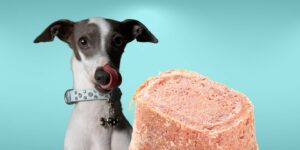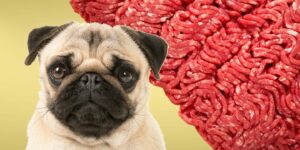The short answer is yes, dogs can eat pork chops. However, there are a few things to consider before feeding pork to your dog. It is important to understand the nutritional value, potential risks, and safe practices when feeding pork to dogs.
Nutritional Value of Pork Chops for Dogs
Pork is a good source of protein, which is essential for building and maintaining muscles, skin, and organs in dogs. It also contains various vitamins and minerals such as thiamine, niacin, and phosphorus, which contribute to a dog's overall health. Pork is relatively low in fat compared to other meats like beef, but it can be high in sodium, which may be harmful if consumed in excess by dogs.
Sodium in Pork and Its Effects on Dogs
While sodium is necessary for maintaining proper electrolyte balance and nerve function in dogs, excessive amounts can lead to dehydration, an upset stomach, and even heart problems. Therefore, it is important to keep your dog's sodium intake in check when feeding them pork.
How Much Pork Can Dogs Eat?
To ensure your dog's health and safety, moderation is essential when feeding them pork. Pork chops should only be given as an occasional treat and not as a regular part of their diet.
When feeding pork to your dog, give them small, bite-sized pieces to prevent choking and aid in digestion. It is crucial to remove any bones before feeding pork to your dog, as bones can be hazardous and cause choking or injury to the digestive tract.
Possible Risks of Feeding Pork to Dogs
Feeding pork to your dog may pose some risks, such as:
High Sodium Content and Its Dangers
As mentioned earlier, high sodium intake can lead to dehydration and other health issues in dogs. Be cautious when feeding pork to dogs with kidney problems, as excessive sodium can exacerbate these conditions.
Bacterial Contamination: E. coli and Salmonella
Raw or undercooked pork can contain harmful bacteria, such as E. coli and Salmonella, which can cause food poisoning in both humans and dogs. Symptoms include vomiting, diarrhea, and abdominal pain. To reduce the risk of bacterial contamination, it is essential to cook pork thoroughly and handle it safely.
Allergic Reactions to Pork in Some Dogs
Some dogs may be allergic to pork, with symptoms including itching, skin rashes, and gastrointestinal issues. If you suspect your dog is allergic to pork, consult your veterinarian and consider alternative proteins for their diet.
Choking Hazards and Bone-Related Injuries
Bones in pork chops can cause choking and injury to dogs if not removed. Cooked bones, in particular, are more likely to splinter and cause harm. Ensure proper bone removal when preparing pork for your dog to avoid these hazards.
Safe Alternatives to Pork Chops for Dogs
For dogs with allergies or as a healthier option, consider other protein sources such as chicken, turkey, or fish. Other healthy treat choices include fruits like blueberries and strawberries or vegetables like carrots and green beans. You can also make homemade dog treats using wholesome ingredients.
Conclusion
In conclusion, dogs can eat pork chops, but it should be given as an occasional treat and in moderation. Be aware of the nutritional value, potential risks, and safe practices when feeding pork to your dog. By following these guidelines, you can safely and responsibly include pork as a treat in your dog's diet.











